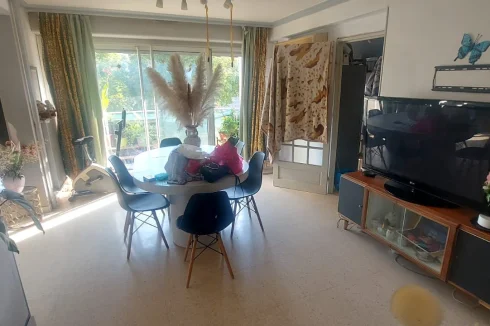Use of Standing Orders and Direct Debits in France
Thursday 05 December 2013
The difference between a ‘virement’ and a ‘prélévement’, and the prospective changes to cross-border payments in Europe.
A virement permanent is a standing order and a prélévement is a direct debit.
Both are automatic methods of payment by the transfer of money from one bank account to another.
Virement
A virement is an order you give your French bank to transfer a specific sum to another bank account.
The other account can be that belonging to a third party, or another one of your own accounts.
It is called ‘punctual’ or 'occasional' if it is solely for one payment, and ‘automatique', ‘permanent’ or 'régulier' if it is arranged on a recurring basis for a definite or indefinite period.
The date of the payment may be immediate, or for a later date; it is for you to choose.
It is credited to the beneficiary account within one day maximum of the order being received, but up to 4 days elsewhere within the EEA.
You can cancel a virement at any time by simply notifying your bank, excepting those virements for immediate execution.
Payments may also be made into your bank account from others by this means, such as reimbursement of medical bills from your complementary 'top-up' insurer.
Some banks do not allow you to set up a virement payment on-line, so you may find that you need to visit the branch to set it up, or write to them.
Prélévement
The main difference with a virement is that the sum to be deducted is decided by the beneficiary, not the holder of the account.
So there is no indication of the amount to be debited; the sum may vary from payment to payment, such as occurs with a telephone or electricity bill.
There are two approaches to the use of prélévements.
i. Titre interbancaire de paiement (Tip)
If you wish to make a one-off payment by prélévement you will be sent a form to complete by your creditor, called a titre interbancaire de paiement (Tip).
The first time you use this form you will need to send it in with a form containing your bank details, called a relevé d'identité bancaire (RIB), and the sum will then be paid by the bank. Several RIBs are included at the rear of your cheque book and you can also ask for some from your bank.
On subsequent occasions, when you receive the Tip, you simply sign it and return it by post to your creditor. So by this means it saves the use of a cheque, but it is not altogether less expensive or easy.
ii. Prélèvement automatique
Alternatively, you can simply give authorisation to the creditor to make a direct debit from your account for each period, as a prélèvement automatique.
In these circumstances you will receive a bill from your creditor prior to the direct debit being paid, which then gives you some time to make sure you are happy with it.
Companies and utility agencies frequently have on-line applications forms to set up a prélèvement automatique, with the application then printed off, signed and submitted to them for onward transmission to your bank.
You are not required to use the prélèvement automatique as a method of payment; it is illegal for companies to insist on any method of payment.
Depending on the terms of your bank account, there may or may not be a charge for setting up and processing a prélévement.
There are different procedures in place for cancelling or contesting a prélèvement automatique.
i. Contesting a Forthcoming Debit - If you are not happy with the proposed debit, you need to make an opposition au prélèvement.
You can do this by simply notifying your bank, either by visit, letter or on-line. You also need to write to the creditor, preferably by recorded delivery, stating why you do not accept it.
The bank is required by European regulations to comply with your instructions, as they have a duty of non-interference in your affairs.
However, depending on the terms of your account, there may be charge by the bank for cancelling the payment.
ii. Contesting an Authorised Debit - If you have not been notified in advance of the prélèvement automatique, or it is not in line with your reasonable expectations, then within 8 weeks of the payment you can demand of your bank or creditor to reimburse the sum debited.
There may of course be a charge.
iii. Cancelling a Debit - If you simply want to cancel a direct debit (révocation d’un prélèvement automatique), whether or not the sums due under the contract have been fully paid, you are entitled to do so, and there should be no charge.
In the case of fraudulent payments or errors made by the bank, you have up to 13 months to contest the payment.
Cross-Border Payments in Europe
Since 2010 it has been possible to make cross-border payments (including those by credit card) in Europe under what is known as the 'Single Euro Payments Area (SEPA)'.
In practice, banks have been slow to migrate to SEPA, but they have been given until 1st Feb 2014 to complete establishment of their systems in accordance with SEPA rules.
As SEPA relates to payments in euros, in the case of those making payments from outside of the Eurozone there may to be a currency charge made by your bank. Alternatively, use a broker and there is not only likely to be a better rate, but also lower fees.
However, in every other respect the same rules apply in relation to SEPA payments as apply within national borders. So if your bank makes no charge for a direct debit within your home country it cannot make a charge for payment within the EEA. If a charge is made, then it must be the same, up to a maximum transfer of €50,000, beyond which SEPA rules do not apply.
Use of SEPA requires that you have the IBAN (International Bank Account Number) and the BIC (Bank Identifier Code) identification numbers of the account to be paid. This information substitutes for all other information that may previously have been necessary to use when making a bank transfer, whether national or international.
The changeover will occur automatically for those standing orders and direct debits already in place.
Back To: French News
Thank you for showing an interest in our News section.
Our News section is no longer being published although our catalogue of articles remains in place.
If you found our News useful, please have a look at France Insider, our subscription based News service with in-depth analysis, or our authoritative Guides to France.
If you require advice and assistance with the purchase of French property and moving to France, then take a look at the France Insider Property Clinic.





